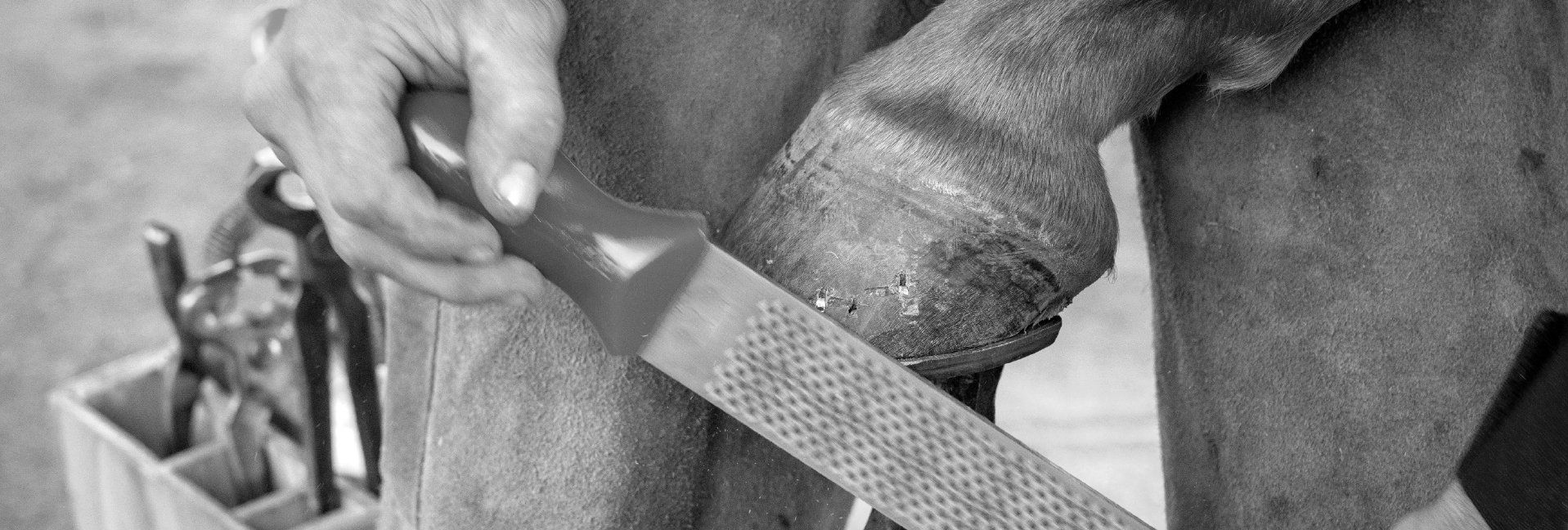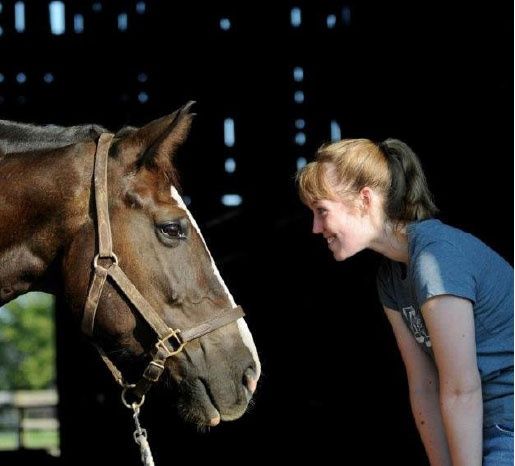7 questions to ask your farrier


You probably spend an awful lot of cumulative hours holding your horse for your farrier—especially if you have more than one horse. Are you using that time as well as you could be?
This is the perfect opportunity to learn more about proper foot care, and with a bit of luck, can reduce your farrier’s bills going forward. After all, the horseshoe is a symbol of good luck!
Here are a few things you can chat about the next time your horse is enjoying a trim:
What’s the best way to deal with an abscess?
If you’ve never battled abscesses before, you may not have a go-to combination of products for a hoof pack. The time to figure out your game plan isn’t when your horse comes in lame. Each farrier has their own combination of products and materials they believe works best, and it’s good to have those materials on hand.
When do I call you?
Likewise, you should also have a sense for when a problem is something you shouldn’t try to treat yourself. Your veterinarian can provide input on this too, but when it comes to an abscess (or potential abscess) it’s good to have an idea from your farrier what warning signs necessitate a quick call, or how long to battle an abscess alone before you need to ask for more experienced help.
How does my horse’s hoof grow?
Most horses have some asymmetry to their hoof shapes. Sometimes that’s based on trimming, but it can also be based on your horse’s conformation and the resulting growth pattern of their hooves. Your farrier is probably modifying his trim slightly to accommodate this already, and knowing what he’s dealing with can only help you keep an eye out for problems.
Is there anything I can do to improve my horse’s ground manners?
Farriers are in a tricky position—their ability to do their job can be greatly impacted by your horse’s ability to stand still and pay attention. It’s also affected by your skills as the horse’s handler. Many of them can be hesitant to suggest to an owner that there is room for improvement, however—after all, the farrier is the employee in the relationship and doesn’t want to offend.
The other tricky part of the equation is that many owners don’t pay as much attention to their horse’s behavior as they think they do. There’s a tendency for many of us to hold the lead rope slack and direct attention elsewhere, which means we can’t be as quick to react to little shifts in the horse’s balance indicating he’s about to pull his foot away. Encourage an open dialogue on this, and remember that farriers deal with all types of horses and behaviors, so they may have some helpful tips.
Does my horse really need those supplements?
There are a lot of dietary supplements and topical paints out there to strengthen hooves. If you ask vets and farriers though, they’ll tell you not all of them work. Letting your farrier know which products you’re looking at may provide some insight into what they’re seeing when they look at your horse’s feet. Because they see so many horses, your farrier could give you some pointers on what to use, and what to leave on the feed store shelf.
What do I need to be watching for this season?
As the weather changes and the pasture changes, the growth rate of your horse’s hooves will change. Added moisture may make the foot softer or increase the risk for thrush. Cold weather can freeze the ground and be tougher on tender-footed horses. Your farrier can give you some ideas about preparing for oncoming weather.
Do I see you enough?
It’s easy to get lax about keeping your horse on a consistent trimming schedule. Some horses can wait longer between trims, especially in winter when their feet may not be growing as quickly, but for many, the traditional four-to-six-weeks is ideal. Leave it too long and your horse may experience cracking or chipping, which can make the farrier’s job more difficult. Check in to see whether your farrier has been noticing this trend with your horse.
Tags:Horse Sense

Acreage Life is part of the Catalyst Communications Network publication family.
















